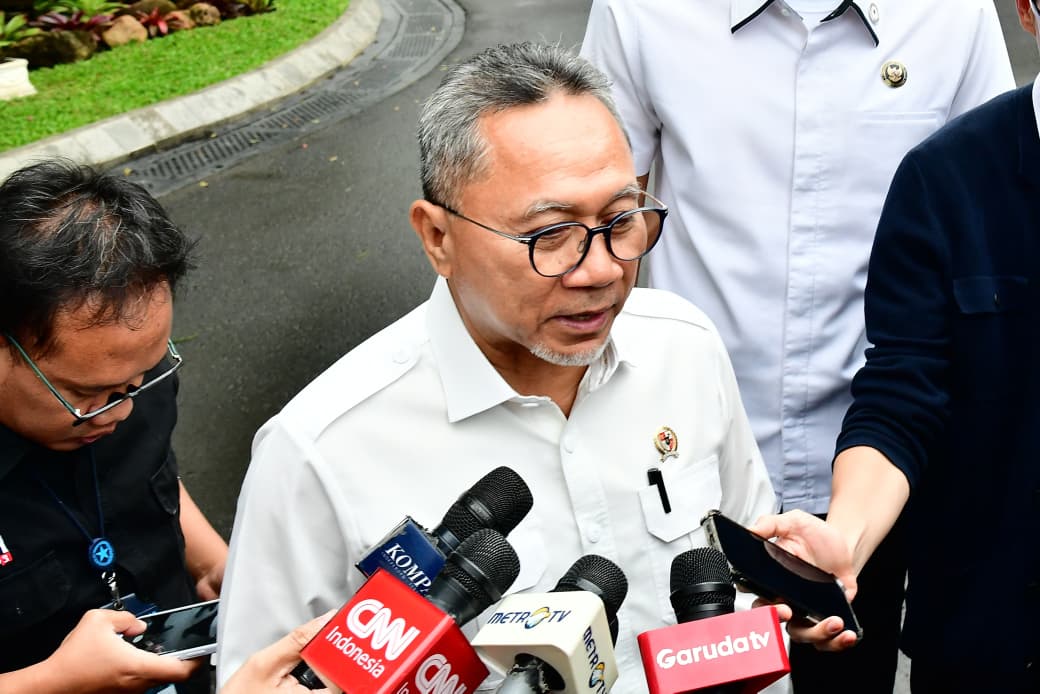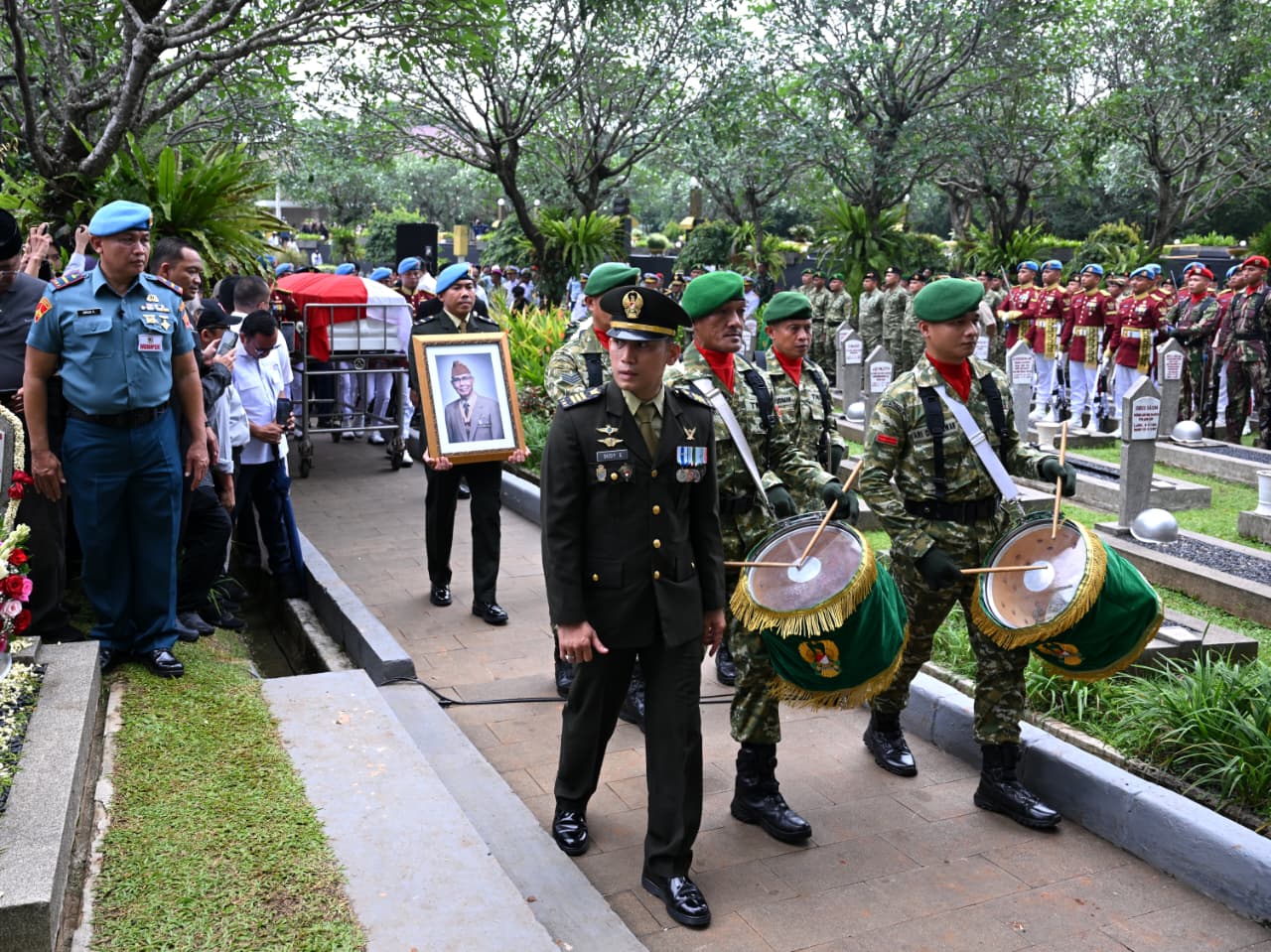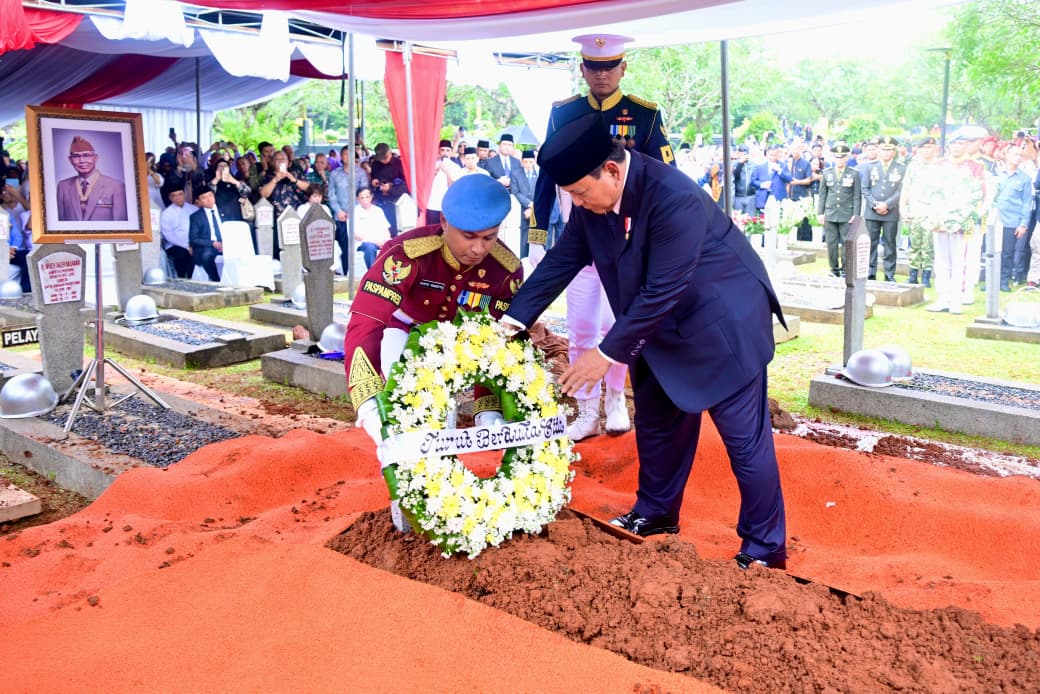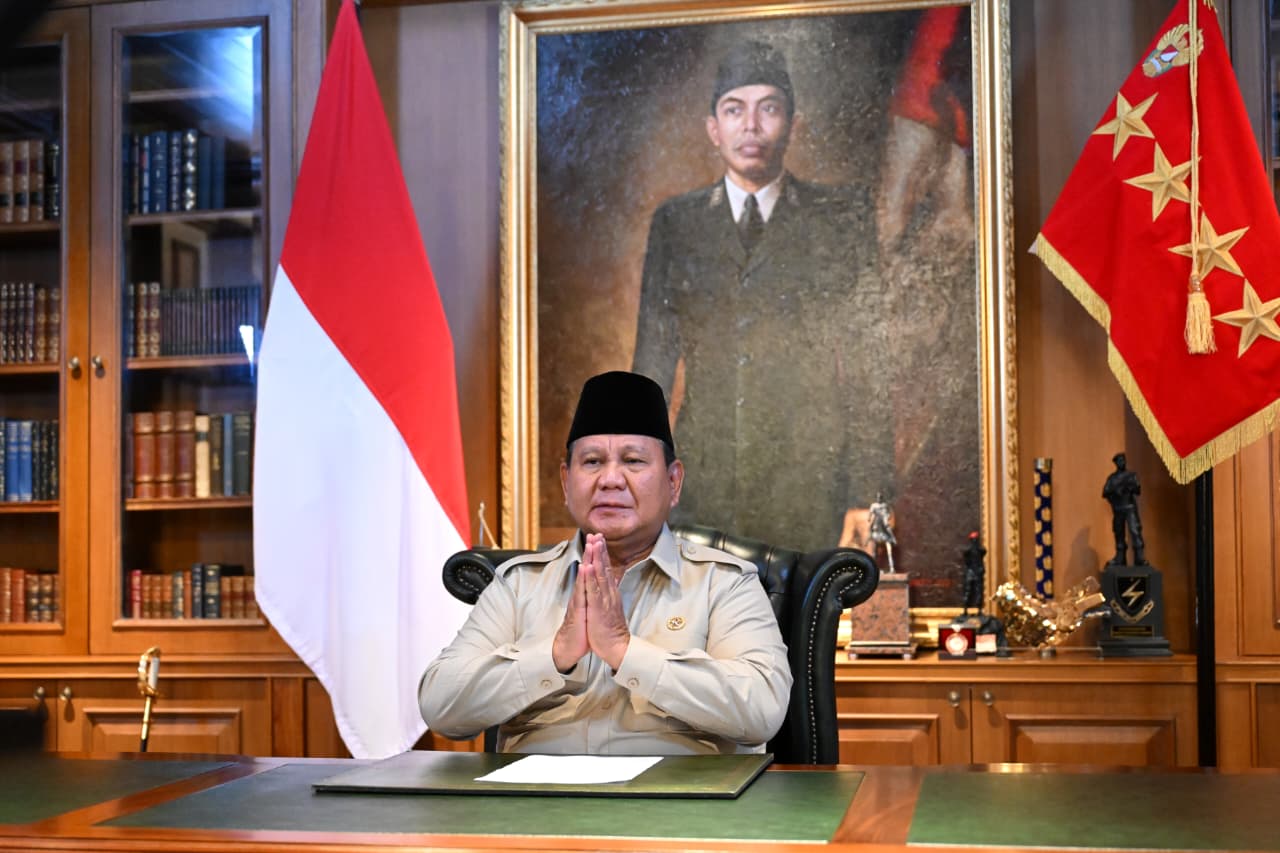President Jokowi Calls for Good Urban Planning at 17th Municipal Gov’t Working Meeting
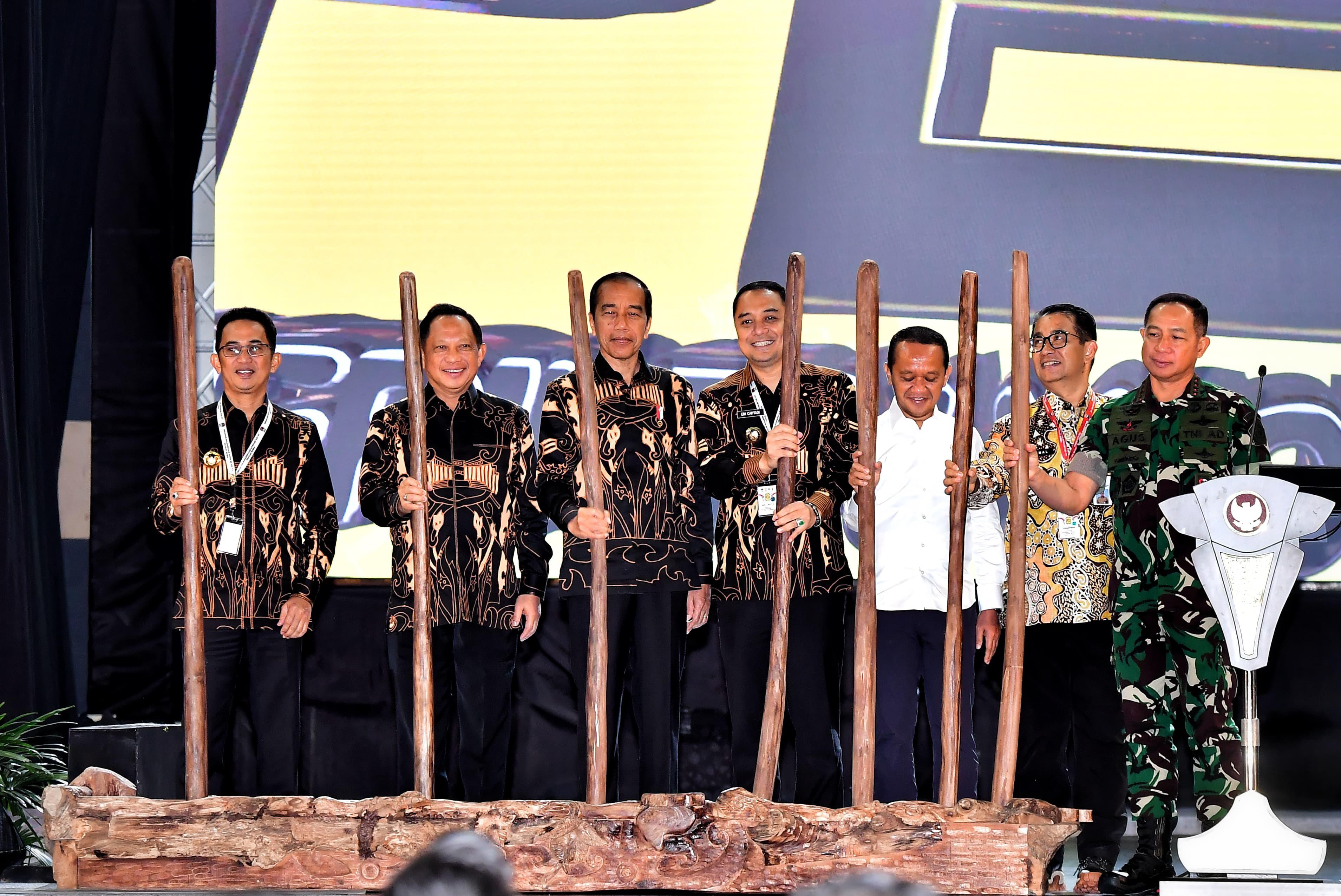
President Joko “Jokowi” Widodo officially opens the 17th National Working Meeting (Rakernas) of the Association of All Indonesian Municipal Governments (Apeksi) 2024 in Balikpapan city, East Kalimantan. (Photo by: BPMI of Presidential Secretariat)
President Joko “Jokowi” Widodo Monday (03/04) arrived at Sultan Aji Muhammad Sulaiman Sepinggan International Airport in Balikpapan, East Kalimantan, at around 17.45 Central Indonesia Time.
Upon his arrival, President Jokowi was greeted by Acting Governor of East Kalimantan Akmal Malik.
The President was scheduled to attend several agendas until Wednesday (06/05), which included inaugurating the opening of the 17th National Working Meeting (Rakernas) of the Association of All Indonesian Municipal Governments (Apeksi) 2024 and various infrastructure developments in the Nusantara Capital City (IKN).
On Tuesday (04/06), the President officially opened the 17th National Working Meeting (Rakernas) of the Association of All Indonesian Municipal Governments (Apeksi) 2024 in Balikpapan city, East Kalimantan.
On that occasion, the President underscored the importance of sound urban planning as urban areas experience rising population density.
“I have frequently emphasized that by 2045, 70 percent of our population will reside in urban areas. Globally, by 2050, it is projected that 80 percent of the world’s population will be concentrated in cities. This will significantly burden urban areas. Therefore, I have consistently stressed the necessity for comprehensive urban planning in every city across Indonesia,” the President said.
The Head of State expressed hope that cities in Indonesia should aspire to be livable cities, avoiding the tensions often seen in European and American cities due to high levels of unemployment and homelessness.
“We want to transform all cities into livable and enjoyable places, where both residents and visitors feel content and eager to return. It’s essential that cities provide excellent public services to their residents, fostering a genuine love for their urban environment,” he said.
According to him, several cities in the country are already grappling with overcrowding, leading to traffic congestion. Consequently, he urged these cities to commence preparations for developing mass transportation systems to alleviate congestion.
“Therefore, once again, city plans regarding mass transportation and public transit infrastructure must be formulated,” he said.
The President also pointed out that there is currently a new cost-effective mode of mass transportation known as Autonomous Rapid Transit (ART). The President elaborated that ART is a form of public transportation resembling a train, comprised of one to three carriages, which operates on a magnetic track.
“In the future, if any city within the Regional Budget (APBD) has the capacity, I urge them to reach out to Minister of Transportation. Funding can be split, perhaps fifty-fifty, with 50 percent from APBD and 50 percent from the State Budget (APBN), for instance. Without action, we risk facing congestion in all cities within the next 10-20 years. We cannot afford to overlook this issue; cities must proactively prepare for the implementation of mass transportation systems,” he said.
Furthermore, the President also highlighted the concept of the city of the future. He said that the city of the future is not characterized solely by high-rise buildings, but rather by pedestrian-friendly infrastructure, accessibility for people with disabilities, cyclist-friendly paths, and safety and inclusivity for women and children.
“This city should prioritize green spaces, adopt smart technologies, and foster a welcoming atmosphere. Let’s avoid constructing cities dominated by concrete. We’ve seen sidewalks entirely made of paving blocks; now, it’s time to prioritize the use of grass paving for a greener environment. This will create a greener environment. In our tropical, hot country, pedestrians often avoid walking due to the lack of shade from trees. Therefore, in the future, green initiatives will be of great concern to all cities,” he added.
In this forum, the President praised Balikpapan and Surabaya for effectively implementing the green city concept. He encouraged other cities to follow suit, as well as to take inspiration from the upcoming Nusa Rimba City concept planned for the Nusantara Capital City (IKN).
“Once again, it’s crucial for cities to prioritize green spaces, shade, pedestrian and cyclist-friendly infrastructure, city forests, and ample squares and parks. This is the vision for the future. If a city is already saturated with buildings and concrete, drastic measures are necessary. This may involve redesigning the cityscape, potentially reducing building density, acquiring properties, and converting them into city parks. There’s no alternative if a city has reached this stage,” the President remarked. (TGH/DNS) (RIF/MUR)





